Latest DePIN News
8 months ago
Conor McGregor's REAL Memecoin: A Cautionary Tale in Crypto Fundraising
Conor McGregor, the renowned Irish mixed martial artist, has recently ventured into the cryptocurrency space with the launch of his memecoin, "REAL." This digital token aims to revolutionize the crypto landscape by offering staking rewards and governance rights within its ecosystem. However, the fundraising efforts for REAL faced significant challenges, raising only $392,315 out of a targeted $1,008,000 during a 28-hour presale. The auction's failure prompted the Real World Gaming (RWG) decentralized autonomous organization to announce full refunds for all bids, as McGregor continues to promote the project with his characteristic enthusiasm, stating, "Ladies and gentlemen, this is REAL!" The team is now considering a relaunch with a revised fundraising strategy to enhance the token's appeal.
Several factors contributed to the unsuccessful fundraising of the REAL memecoin. The launch coincided with a downturn in the cryptocurrency market, where major coins like Ether and Solana experienced significant declines. Additionally, economic uncertainties stemming from global tariff reorganizations and fears of recession made investors more cautious. The memecoin space has also been marred by scams, leading to a general distrust among potential investors. Misinterpretations of REAL's objectives and skepticism towards celebrity-backed tokens further complicated the fundraising efforts, as many viewed it merely as another celebrity-endorsed project.
The failure of REAL's fundraising serves as a cautionary tale for investors in the crypto space. It underscores the importance of looking beyond celebrity endorsements and understanding the fundamentals of a project. Investors should conduct thorough research to assess a token's utility, community engagement, and overall credibility. The incident highlights the need for regulatory clarity in celebrity endorsements to protect retail investors and maintain the integrity of the cryptocurrency market. As the crypto landscape continues to evolve, genuine trust and long-term vision will prove more valuable than mere fame in fundraising efforts.
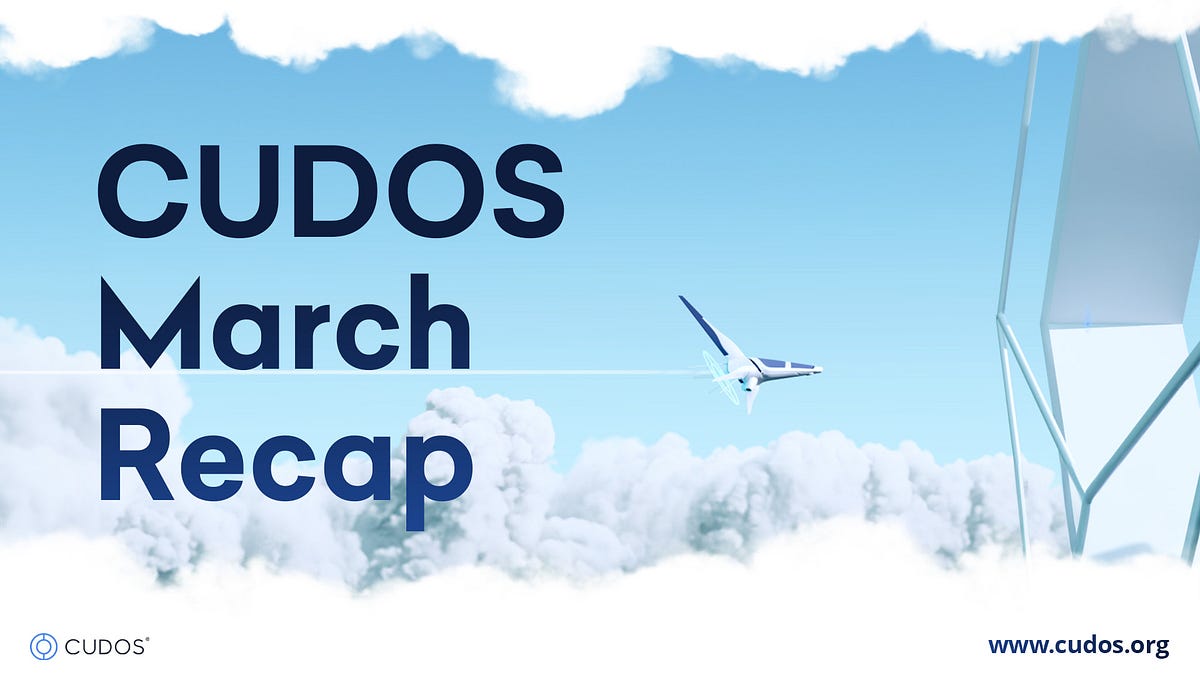
8 months ago
CUDOS March 2025 Recap: Record Compute Growth and Strategic Partnerships
March 2025 proved to be a pivotal month for CUDOS, showcasing significant advancements in the CUDOS Intercloud and ASI ecosystems. The month was marked by record-breaking compute growth, with 250,660 compute hours delivered, representing the highest single-month total to date. This surge in demand, particularly from AI and Web3 workloads, contributed to a monthly revenue increase of 30%, reaching $180,000. The total ecosystem revenue surpassed $1.5 million, highlighting a robust shift towards distributed computing, with a total of 1.6 million compute hours logged, up 17% from February. The user base also expanded to 17,000, indicating a growing adoption among developers and node operators seeking alternatives to centralized cloud solutions.
The collaboration between CUDOS and the ASI Alliance, which includes Fetch.ai, SingularityNET, and Ocean Protocol, has also matured over the past year. CUDOS has successfully integrated into the ASI stack, serving as the distributed compute layer, and completed the token migration with $FET, enabling wallet-native usage. This partnership is aimed at building a distributed, privacy-first AI future, emphasizing the importance of computing without compromise. The integration of CUDOS with ASI reflects a commitment to advancing distributed intelligence and self-sovereign AI architectures.
In addition to these developments, CUDOS launched a partnership with Rainfall, a privacy-preserving personal AI platform, enhancing node deployment integration. This collaboration allows node operators within the Rainfall ecosystem to utilize CUDOS Intercloud for scalable, low-cost compute solutions. Furthermore, CUDOS introduced a referral program to incentivize users to share their network, offering commissions in $FET for successful referrals. As demand for compute resources continues to rise, CUDOS is set to enhance its platform with new features, tutorials, and community support, paving the way for future innovations in distributed computing.

8 months ago
SEC Dismisses Lawsuit Against Nova Labs, Clarifying Helium's Token Status
The U.S. Securities and Exchange Commission (SEC) has officially dismissed its lawsuit against Nova Labs, the company responsible for the Helium Network. This decision clarifies that the tokens and hotspot devices associated with the Helium blockchain do not qualify as securities. Helium stated that the SEC's ruling indicates that "selling hardware and distributing tokens for network growth does not automatically make them securities." This landmark decision not only sets a precedent but also alleviates legal uncertainties surrounding the regulatory treatment of decentralized physical infrastructure networks, marking a significant shift in the SEC's approach under new leadership.
The lawsuit, originally filed on January 17, accused Nova Labs of violating securities laws through unregistered offerings and misleading investors regarding partnerships with major corporations like Nestlé and Salesforce. The dismissal of this case is particularly notable as it was one of the last enforcement actions taken by former SEC Chair Gary Gensler before his departure. Helium co-founder Amir Haleem described the SEC's actions as "the last gasp of a failed crusade against crypto companies in the U.S." Following the dismissal, Nova Labs reached a modest settlement of $200,000 related to its Series D equity financing, which is significantly lower than penalties imposed in previous crypto-related cases.
The resolution of this case is part of a broader trend of reversals by the SEC under the newly appointed leadership of Paul Atkins, who was confirmed by the Senate. During the interim period after Gensler's exit, the SEC has moved to dismiss several major crypto enforcement actions and has issued statements exempting various crypto activities from securities regulation. Despite the positive news for Helium, the network's native token, Helium (HNT), saw little movement, remaining at $2.76 according to CoinGecko data.
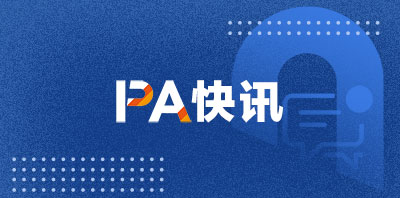
8 months ago
DoubleZero and Roam: Pioneering the DePIN Landscape on Solana
In a significant development within the DePIN ecosystem, the DoubleZero Foundation has secured a remarkable investment of $28 million from top venture capital firms, including Dragonfly and Multicoin Capital. Founded by Austin Federa, who previously played a pivotal role at the Solana Foundation, DoubleZero aims to create a robust web3 infrastructure by addressing the challenges faced by current blockchain networks. The project is designed to enhance bandwidth and reduce latency, facilitating smoother operations for web3 applications. The investment signals strong support from the Solana ecosystem, indicating a collective effort to build a physical infrastructure network that can rival traditional web2 solutions.
Another noteworthy project, Roam, has emerged as a decentralized wireless network built on the Solana blockchain. Launched on March 6, Roam aims to provide seamless WiFi and eSIM connections globally, boasting over 2.3 million users and 2 million WiFi nodes across 190 countries. With a market capitalization exceeding $60 million, Roam utilizes blockchain technology to ensure secure connections and automatic network switching. Its innovative approach, combined with a strong incentive mechanism for users to share WiFi, positions Roam as a leading player in the DePIN space, drawing comparisons to Starlink for its ground-based communication solutions.
As of mid-March 2025, the DePIN ecosystem on Solana has flourished, with a market value surpassing $25 billion. This growth is attributed to Solana's technical advantages, such as high throughput and low transaction costs, making it an attractive platform for DePIN projects. The Solana Foundation's proactive support through funding and hackathons has further nurtured this ecosystem. With approximately 78 DePIN projects currently active on Solana, including notable names like Helium and Render Network, the platform is poised to lead the way in decentralized physical infrastructure, showcasing its potential to reshape the future of connectivity and data sharing in the blockchain space.
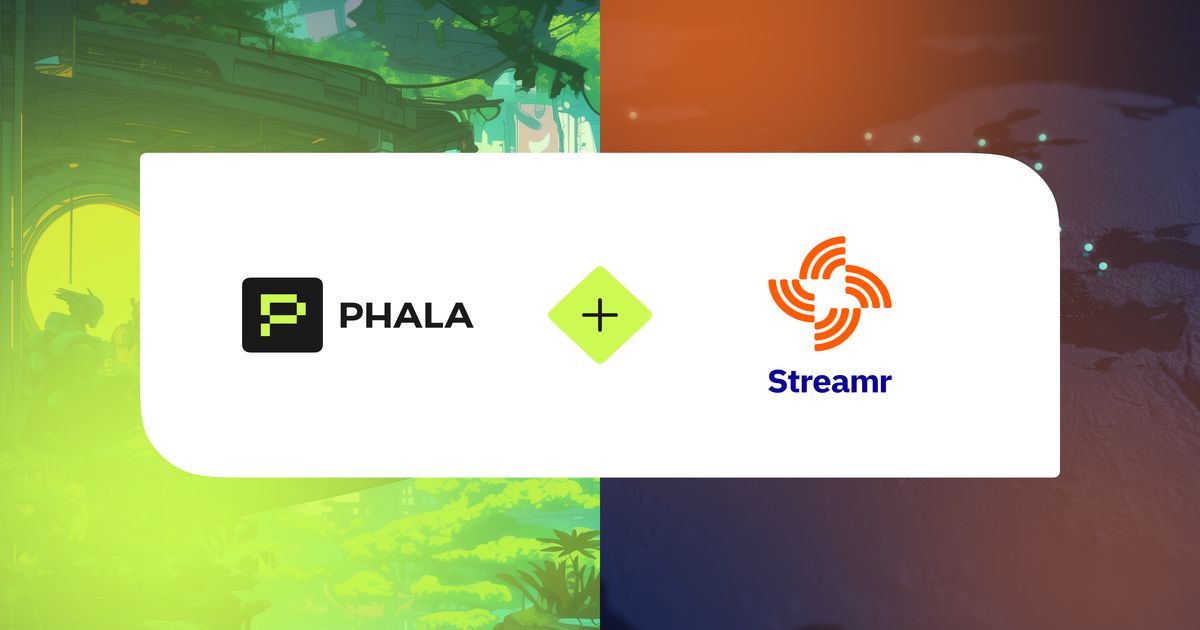
8 months ago
Phala Network and Streamr Join Forces to Revolutionize Decentralized AI
Phala Network and Streamr have announced an exciting new partnership aimed at revolutionizing the landscape of decentralized AI. This collaboration merges Phala's trusted computing infrastructure with Streamr's decentralized, real-time data streaming capabilities. The goal is to create a new class of AI agents that can process live data securely and privately, without relying on centralized intermediaries. By combining these technologies, the vision of real-time, decentralized AI is becoming a reality, paving the way for innovative applications in various sectors.
Streamr operates on a decentralized network specifically designed for real-time data streaming, utilizing a peer-to-peer architecture and a publish/subscribe model. This structure allows data producers to broadcast streams that can be instantly consumed by applications and nodes, significantly reducing latency and enhancing resilience. The integration of blockchain technology within Streamr supports monetization and access control through its native DATA token, fostering a robust open data economy for Web3 applications. This partnership emphasizes a shared mission to create a more open and user-controlled web, moving away from reliance on traditional cloud services.
The collaboration leverages Phala's Trusted Execution Environments (TEEs) and Phat Contracts, which provide secure, encrypted enclaves for AI computations. This ensures that even the machine's owner cannot access the data or logic, creating a strong foundation for verifiable AI computation. By integrating Streamr's real-time data delivery with Phala's secure compute layer, developers can create AI systems that process live data while preserving privacy and resisting censorship. This partnership not only showcases the potential of decentralized infrastructure but also opens new avenues for developers to build innovative AI solutions aligned with the core values of Web3—privacy, transparency, and decentralization.
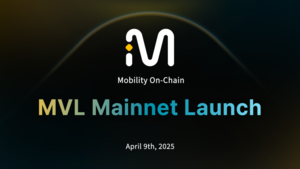
8 months ago
MVL Launches Mainnet to Revolutionize Mobility Infrastructure
MVL, a leader in blockchain-based mobility solutions, has officially launched its mainnet on April 9, 2025, marking a significant advancement in its mission to create a value-sharing mobility ecosystem. Founded in 2018, MVL aims to ensure that drivers, riders, and service providers benefit equitably through blockchain technology. The new mainnet is built on Base Appchains, a Layer 3 app-specific rollup developed by the Coinbase Developer Platform, which allows MVL to operate independently without competing for resources. This setup provides MVL with enhanced scalability, faster transaction speeds, and a robust infrastructure, ensuring a seamless experience for users of its services, particularly the zero-commission ride-hailing platform, TADA.
The launch of the MVL mainnet is pivotal for the expansion of TADA, which has already established itself as the second leading ride-hailing service in Singapore and is set to enter the U.S. market through a partnership with Drivers Cooperative Colorado. This collaboration aims to introduce a zero-commission ride-sharing service in the U.S., leveraging TADA's technology and operational expertise. The integration of TADA's infrastructure onto the blockchain, referred to as DePIN (Decentralized Physical Infrastructure Network), enhances transparency and shifts control back to users, challenging traditional platform models that often prioritize corporate profits over user benefits.
In addition to TADA, MVL has launched 'Musubi', a digitized vehicle finance platform that connects ride-hailing drivers with investors. Musubi allows for the digitization of vehicle-related rights, providing real-time access to critical data such as vehicle location and performance metrics. CEO Kay Woo emphasized that the mainnet will unify MVL's services, fostering synergies across the ecosystem and driving further innovation in the mobility sector. With ongoing expansions and partnerships, MVL is poised to redefine the future of mobility through blockchain technology.

8 months ago
Cryptocurrency Market Faces Significant Downturn Amid Broader Financial Instability
The cryptocurrency market has recently experienced significant downturns, with Bitcoin (BTC), Ethereum (ETH), and Solana (SOL) facing notable losses. Bitcoin is currently trading at $78,431.78, reflecting a 4.99% decline over the past 24 hours, while Ethereum has dropped 10.32% to $1,577.75. This bearish trend is indicative of a broader shift in market sentiment, influenced by instability in traditional financial markets, including major stock indices like the Shanghai Composite and the Hang Seng Index, which have also seen sharp declines. Investors are increasingly cautious, leading to speculation about the future of these digital assets amidst a challenging economic landscape.
Solana has emerged as one of the more significant casualties in this downturn, with its price falling to $99.93, marking a staggering 63% drop from its all-time high of $270. Once viewed as a strong competitor to Ethereum, Solana's recent struggles highlight the volatility inherent in altcoins. The negative sentiment surrounding Solana mirrors a broader trend in the altcoin sector, where many tokens are experiencing substantial losses as investors shift towards safer assets. This shift is driven by various factors, including global economic uncertainties and tightening regulations, further complicating the outlook for smaller projects in the cryptocurrency space.
As the cryptocurrency market grapples with these challenges, the ongoing decline in Bitcoin, Ethereum, and Solana prices underscores the difficulties faced by investors. The current market environment, characterized by risk aversion and a preference for liquidity, suggests that the path ahead may be fraught with obstacles. Investors are advised to exercise caution and patience as they navigate this increasingly volatile landscape, with many keeping a close watch on how these assets perform as we progress through 2025. The interplay between traditional financial markets and cryptocurrencies will likely continue to shape investor sentiment and market dynamics in the months to come.
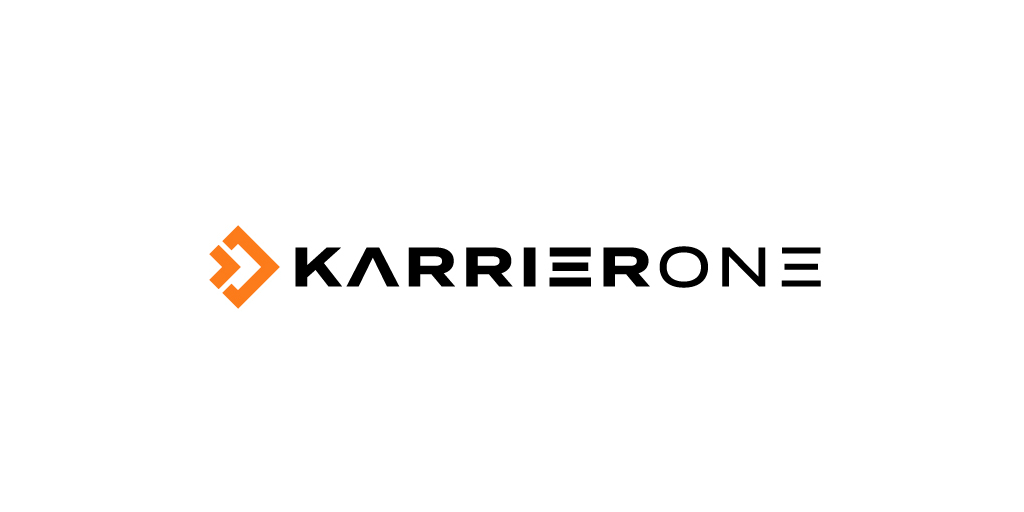
8 months ago
Karrier One Partners with AT&T to Enhance Wi-Fi Offload Capabilities
Karrier One Inc., a leader in Web3-powered telecom solutions, has announced a significant partnership with AT&T Mobility LLC aimed at enhancing both domestic and international Wi-Fi offload capabilities. This collaboration is set to accelerate the adoption of decentralized physical infrastructure networks (DePIN) for next-generation wireless connectivity. By leveraging the Sui blockchain, this initiative will expand global Wi-Fi offload coverage, allowing users to enjoy seamless and secure connectivity in premium locations around the world.
Under the terms of the agreement, Karrier One will enable AT&T Mobility and its subscribers to access an expanded network of Wi-Fi offload locations utilizing Hotspot 2.0/Passpoint technology. This advancement is expected to reduce costs and improve network performance, ensuring that subscribers remain connected in areas where traditional cellular infrastructure may fall short. The initiative aligns with AT&T's ongoing commitment to enhancing network coverage and embracing innovative Web3-driven telecom solutions.
Samer Bishay, CEO and Co-Founder of Karrier One, emphasized the importance of alternative infrastructure models in the evolving telecom landscape. He stated that this partnership not only enhances connectivity but also shapes the future of decentralized telecom infrastructure, making networks more resilient and accessible. By combining licensed spectrum, Wi-Fi offload, and blockchain innovation, Karrier One and AT&T aim to revolutionize telecom infrastructure, ultimately improving user experiences and reducing operational costs for subscribers worldwide.

8 months ago
Fartcoin: The Surprising Rise of a Memecoin in Solana's AI Sector
In the ever-evolving cryptocurrency landscape, few tokens have garnered as much attention as Fartcoin, a Solana-based AI memecoin. Despite its nascent status, Fartcoin has established a notable presence on social media platforms, particularly Twitter, where it is perceived as a buy signal by savvy investors. This Belarus-born memecoin has quickly positioned itself as a frontrunner within the Solana ecosystem, outpacing many of its more established competitors. With a market cap of $455.2 million, Fartcoin now commands 32.1% of the total market cap of AI tokens on Solana, which stands at approximately $1.1148 billion across 772 projects.
Fartcoin's rise is particularly remarkable given that it lacks the typical utility or technological claims associated with many AI tokens. Instead, it has leveraged the current enthusiasm surrounding artificial intelligence to carve out a significant niche in the market. Its performance has eclipsed that of established tokens like #ai16z, with Fartcoin's market cap exceeding that of its nearest competitor by nearly 250%. This unexpected success raises questions about the future of AI tokens on the Solana blockchain, suggesting a potential shift in investor interest towards lighter, meme-based projects over more traditional tech-heavy solutions.
The appeal of Fartcoin among institutional investors, often referred to as "smart money," is a key driver of its success. These investors are drawn to Fartcoin's unique position in the market, where its meme culture and community engagement have proven to be powerful assets. As Fartcoin continues to attract significant investment and attention, its future remains uncertain, but its current trajectory indicates that it has established itself as a formidable player in the AI sector on Solana. Ultimately, Fartcoin exemplifies the unpredictable nature of the cryptocurrency world, where even a memecoin can dominate a market segment traditionally reserved for more serious projects.

8 months ago
Top 3 Altcoins to Watch as Crypto Market Prepares for Breakout
The crypto market is currently showing signs of a potential breakout, with altcoins gaining momentum rapidly. Historically, significant price movements begin quietly, allowing astute investors to position themselves before explosive growth occurs. For those seeking undervalued altcoins with substantial upside potential, now is an opportune moment to invest. Among the top contenders, Kaanch Network stands out as a presale-stage project poised for significant gains.
Kaanch Network (KAANCH) is a high-utility altcoin designed for real-world applications, including tokenized supply chains and decentralized AI. Currently in its active presale phase, it presents a unique entry point before it gains traction through exchange listings and media attention. The project is gaining popularity among early investors due to its innovative approach and alignment with major trends like DePIN and AI. With strong community support and early venture capital interest, Kaanch Network is well-positioned for a breakout.
Other notable altcoins include Injective Protocol (INJ) and Theta Network (THETA). Injective Protocol is a high-speed derivatives engine tailored for DeFi applications, benefiting from the resurgence of decentralized finance and increasing trading volumes. Meanwhile, Theta Network focuses on decentralized video streaming and content delivery, capitalizing on the shift towards Web3 entertainment. As these projects continue to develop and attract attention, investors are encouraged to act quickly before these tokens experience significant price increases.
Signup for latest DePIN news and updates